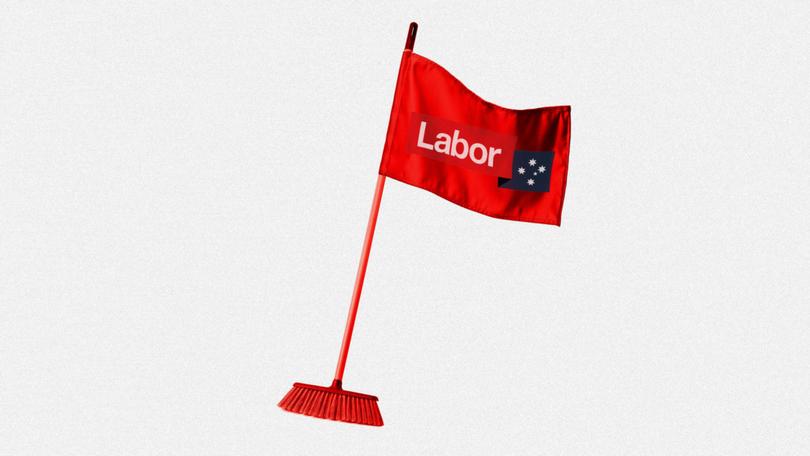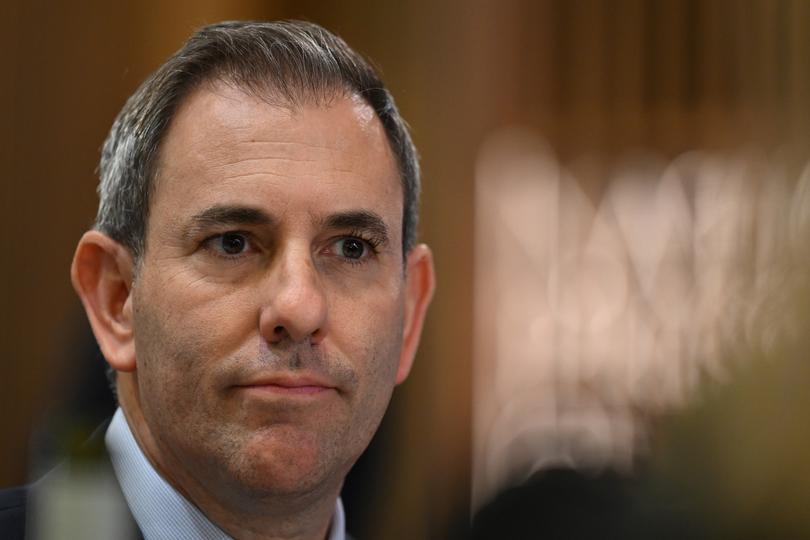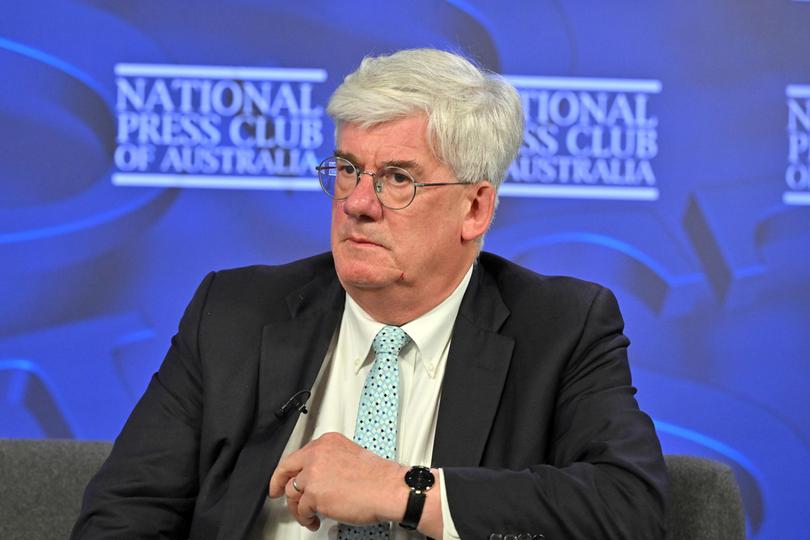Business bodies urge Labor to use mandate to tackle structural economic changes to end lagging productivity
Business bodies have urged Labor to use its mandate to finally tackle the structural economic changes sorely needed to end the nation’s lagging productivity plight.

With a mandate to govern that may give it six years in power, business leaders are hoping Labor will pivot toward a reform agenda and avoid a repeat of big government spending that could crowd out the private sector.
Westpac chief executive Anthony Miller was the first out of the blocks on Monday morning, calling the expanded mandate “really positive”.
“The certainty that the Labor Party has provided over the last couple of years in government — and now re-elected — is an incredibly powerful outcome and a very good one for the country,” he said.
Sign up to The Nightly's newsletters.
Get the first look at the digital newspaper, curated daily stories and breaking headlines delivered to your inbox.
By continuing you agree to our Terms and Privacy Policy.Mr Miller was speaking on the back of Westpac’s first-half results, one in which the bank warned that geopolitical uncertainty is a “risk that’s as high as it has been for a very long time.”
Those words should be top of mind for Treasurer Jim Chalmers as he settles in for a new term in office.
Mr Miller — a former investment banker who spent 16 years at Goldman Sachs and ran the Asia Pacific division of Deutsche Bank — said Australia has a unique opportunity to capitalise on its strengths.
“Given the uncertainty and given the inconsistency and the volatility that we think, I think, it’s an enormous positive, (amid) the battle to win talent and to bring capital to invest and to grow the country,” he said.
“To complement that advantage that we have, which is that consistency and that certainty, is a really unique opportunity ... around driving the productivity agenda in Australia.”

Australia’s productivity fell 1.2 per cent last year and is now at a level not seen in 60 years, prompting Dr Chalmers’ pledge to put it at the top of his agenda.
“The best way to think about the difference between our first term and the second term that we won last night – the first term was primarily inflation without forgetting productivity.The second term will be primarily productivity without forgetting inflation.,” Dr Chalmers told the ABC on Sunday morning.
But veteran economist Saul Eslake warned there was little chance of Labor solving the productivity crisis, given it refused to take a mandate for reform to this election.
With the “low-hanging fruit already picked”, Mr Eslake said Labor should apply the same discipline of the campaign to explaining to Australians that reform was necessary — but more importantly, necessarily uncomfortable.
“The Business Council of Australia and others are saying, ‘now you’ve got to do all these reforms’. Well, you can’t, if you don’t have a mandate.
“They don’t have a mandate because they didn’t ask for one, and they didn’t ask for one because they thought if they did ask for one, they’d lose. So they’re sort of stuck in the sense that if they try to do the things that ought to be done, they’ll lose.
“Just ask Campbell Newman.”
For their part, the BCA called for a productivity mandate that unlocks investment and growth in the private sector.
“Which is ultimately the only way to sustainably boost living standards and lift real wages,” chief executive Bran Black said.
The BCA said the country must work on improving living standards, increasing skills, boosting housing supply, delivering sustainable health and care services, and achieving an affordable and reliable pathway to net zero.
“These actions, along with harnessing AI, creating better investment attraction settings and achieving a balanced approach to industrial relations are all fundamental to boosting productivity and increasing prosperity for all Australians,” Mr Black said.
Innes Willox, chief executive of the Australian Industry Group, said the Government had put forward a “big spending agenda” that had resulted in an “unsustainable” tax-to-GDP ratio of 30 per cent.
He said that if such high levels of spending were to be pursued, the economy would have to grow faster — which meant finding ways to improve productivity.
“Now is the time in their second term (to) start to address some of the big structural reforms that we will need to make us competitive,” Mr Willox said.
“These will take a long time to work through and then to finalise, and then to discuss with the Australian people, and that’s something that we would hope the government will work up through this term.”
He said parts of the Australian economy — including retail, construction, hospitality, tourism, accommodation, and manufacturing — were nearing or in a recession, with the manufacturing sector proving particularly vulnerable to the fallout from US tariffs.
Given the challenged state of a number of sectors, Mr Willox worried that the increased mandate would result in more industrial relations tensions.
“We’re really concerned that the trade union movement is going to knock on their door next week with another long laundry list of measures which will just make it harder for businesses to operate and invest in Australia,” he said.
Business leaders have called for Labor to finally pull the trigger on comprehensive tax reform — something last attempted with the introduction of the GST in 2000, and later stalled with the Henry Tax Review under Kevin Rudd.

Mr Eslake said the current tax system was not only “increasingly inequitable and inefficient” but was “incapable of raising the revenue required to pay for the spending that the people clearly want”.
Luke Acherstraat, chief executive of the Council of Small Business Organisations Australia, also called for tax reform, as well as a reduction in the company tax rate for small businesses from 25 per cent to 20 per cent.
“Many of the Treasurer’s stated goals – productivity, lower inflation, more jobs, AI adoption and aspiration – all rely on the engine room of the economy being empowered and invigorated,” Mr Acherstraat said.
Ben Thompson, chief executive of Employment Hero — a fast-growing payroll company expanding globally and working with hundreds of thousands of small and medium businesses — said the Government should be promoting an AI-driven workforce.
“Instead of one-off deductions, we’re calling on the Government to start funding the foundations to future-proof the workforce, such as high -speed connectivity, nationwide digital upskilling and responsible AI adoption. Those investments compound; a quick tax write-off does not,” Mr Thompson said.
Another core concern was the rising cost of energy and its impact on business.
The Energy Users Association of Australia — representing large industrial companies like BlueScope Steel as well as retailers like Coles — said Australia was caught in the “messy middle” of the energy transition, and warned the estimated $50 billion of network costs for renewable projects would drive prices higher.
“The bill impacts are hard to assess as the capital costs are constantly and dramatically changing, (and) Governments may need to play an interim ‘shock absorber’ role to guard against energy users drowning under the waves,” EUAA chief executive Andrew Richards said.
Mr Miller saw housing affordability as an issue that needed to be fixed with a comprehensive program to increase supply, noting that an average house now costs 10 times the average income, when bank lending standards require leverage at 5-6 times.
“The big challenge for this country is how do we unpack and repack the entire system in terms of how houses, get approved, constructed and delivered into the community,” Mr Miller said.

